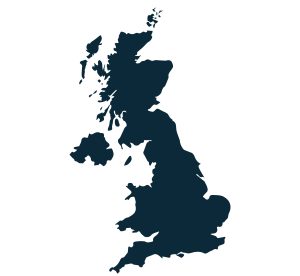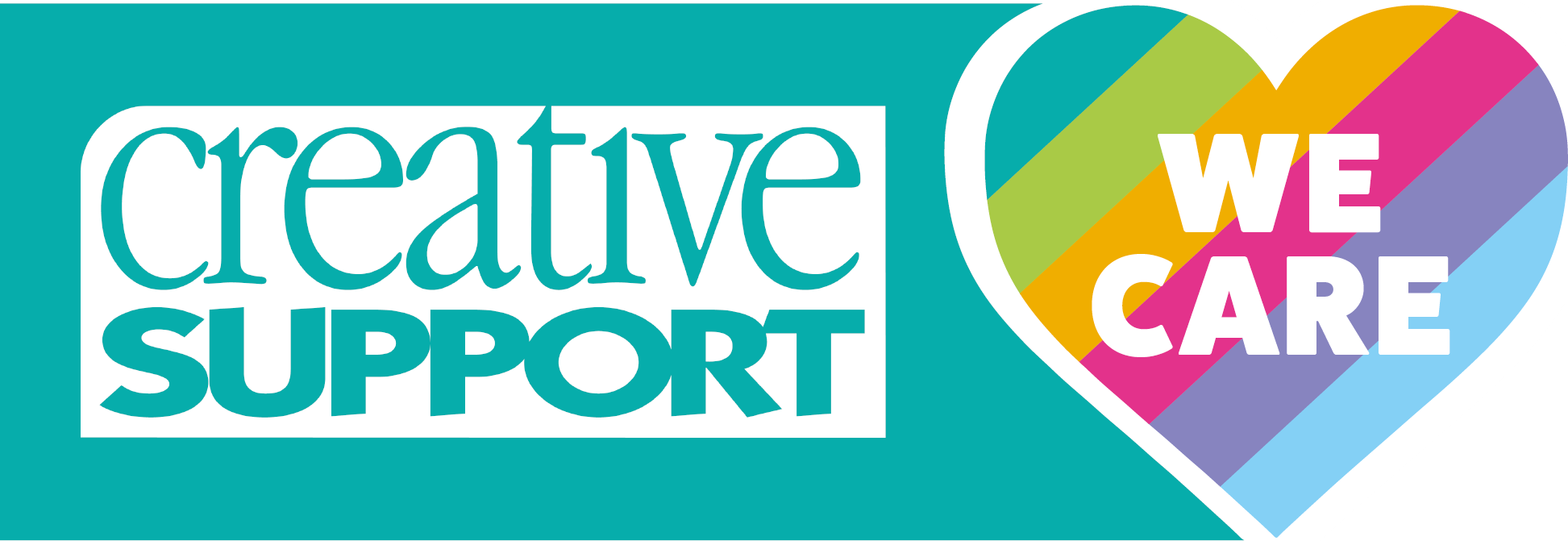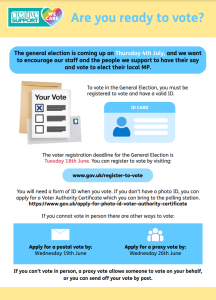What is a General Election?

You might have been hearing a lot about the upcoming election on Thursday 4th July, but how do general elections work? How is our government formed? Politics can seem complicated, so we’ve broken down some of the key concepts to share with your services and the people you support.
What is a general election?
 A general election is an opportunity to choose a Member of Parliament (MP) to represent your area in the House of Commons.
A general election is an opportunity to choose a Member of Parliament (MP) to represent your area in the House of Commons.
The UK is divided into 650 areas, called ‘constituencies’ or ‘seats’. Each of these elects one MP to represent them in Parliament.
You will have several candidates to choose from, and most of these will be representatives for national political parties.
How does voting work?
Each person has one vote. You can vote in person at a polling station, in advance by post, or have someone vote for you ‘by proxy’.
In the UK we have a system called ‘first past the post’. This means voters in each area select their preferred candidate, and the one with the most votes wins.
The party that has the most MPs elected will form the new government, and the party’s leader is asked by the King to become Prime Minister. The leader of the party with the second highest number of MPs becomes the Leader of the Opposition.
If no party ends up with a majority of MPs, the result is a hung parliament. The parties may decide to form a coalition government, which is made up of ministers from each party.
How is Parliament made up?
 UK Parliament is made up of two ‘Houses’ – the House of Commons and the House of Lords. The general election is an opportunity to choose an MP to represent you in the House of Commons.
UK Parliament is made up of two ‘Houses’ – the House of Commons and the House of Lords. The general election is an opportunity to choose an MP to represent you in the House of Commons.
The House of Commons has 650 MPs, who represent a part of the UK called a ‘constituency’ or a ‘seat’. They debate political issues and new laws.
The House of Lords has over 700 members who are appointed due to their knowledge or experience in a particular field. They vote on new laws, question government action and investigate public policy. When both houses agree on a law, the King approves it.
Key vocab
- MP – Stands for Member of Parliament, which is a person elected by a particular area in the UK to represent them in the House of Commons
- Constituency/seat – An area of the UK represented by an MP
- Parliament – An assembly of representatives that make laws
- Party – Organisation with candidates to compete in elections, with specific beliefs about how the country should be run
- First past the post – A voting system where people vote for a candidate to represent their area
- Hung Parliament – When no political party receives enough seats to get the majority in Parliament
- Coalition – When two or more political parties agree to form a government that includes ministers from each party
- Prime Minister – Leader of the political party who wins the most constituencies, sworn in by the King
- House of Commons – Comprises of 650 elected members that represent areas in the UK, who meet in Parliament to debate topics and new laws
- House of Lords – Around 700 unelected members who are appointed due to their expertise, and debate new laws
Click here to download and print this poster to display in your service.
The poster outlines the deadlines for:
- Registering to vote: Tuesday 18th June 11:59pm
- Applying for a postal vote: Wednesday 19th June 5pm
- Applying for a proxy vote: Wednesday 26th June 5pm
- Applying for a free voter ID card: Wednesday 26th June 5pm
Download easy read guides about UK Parliament below.

